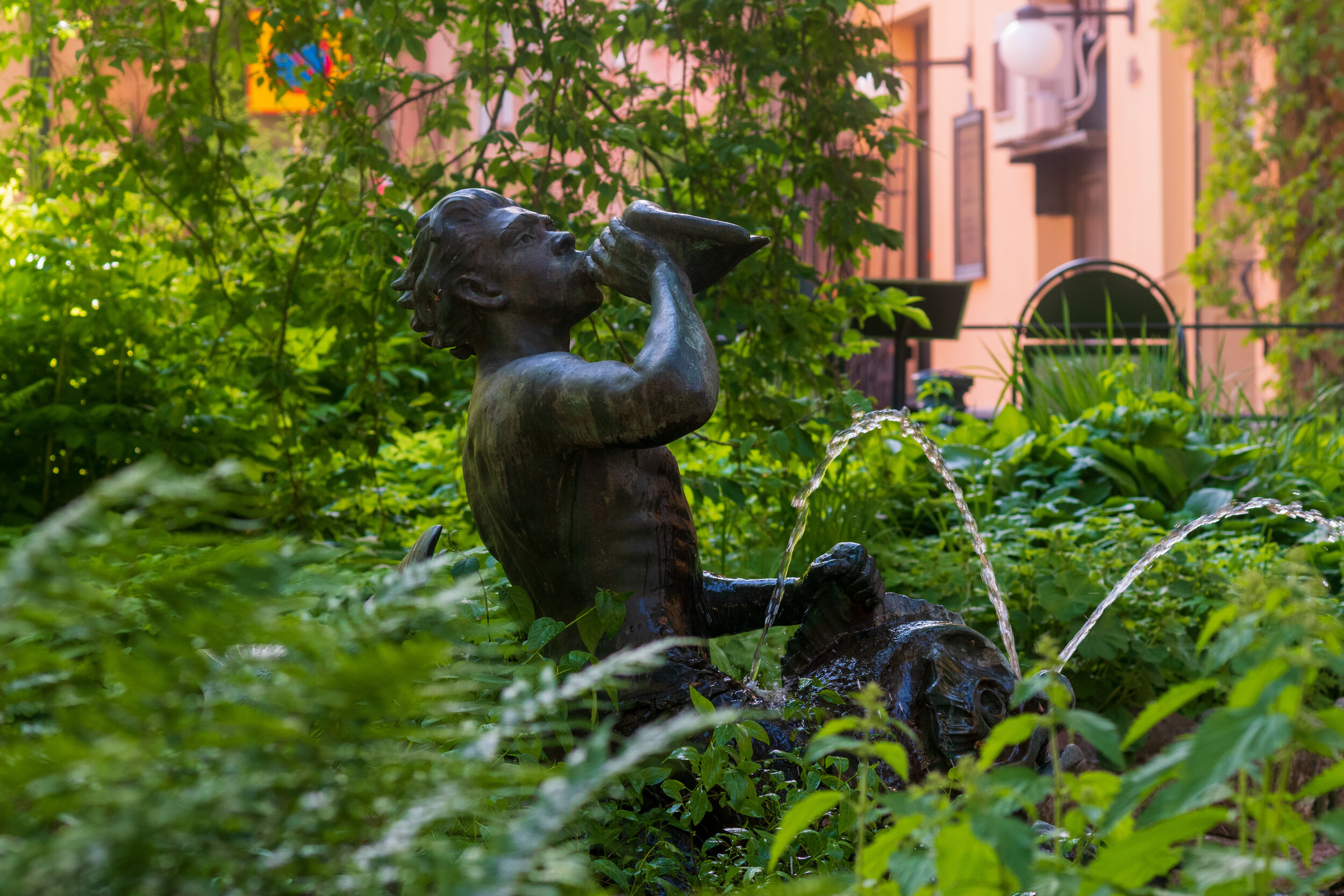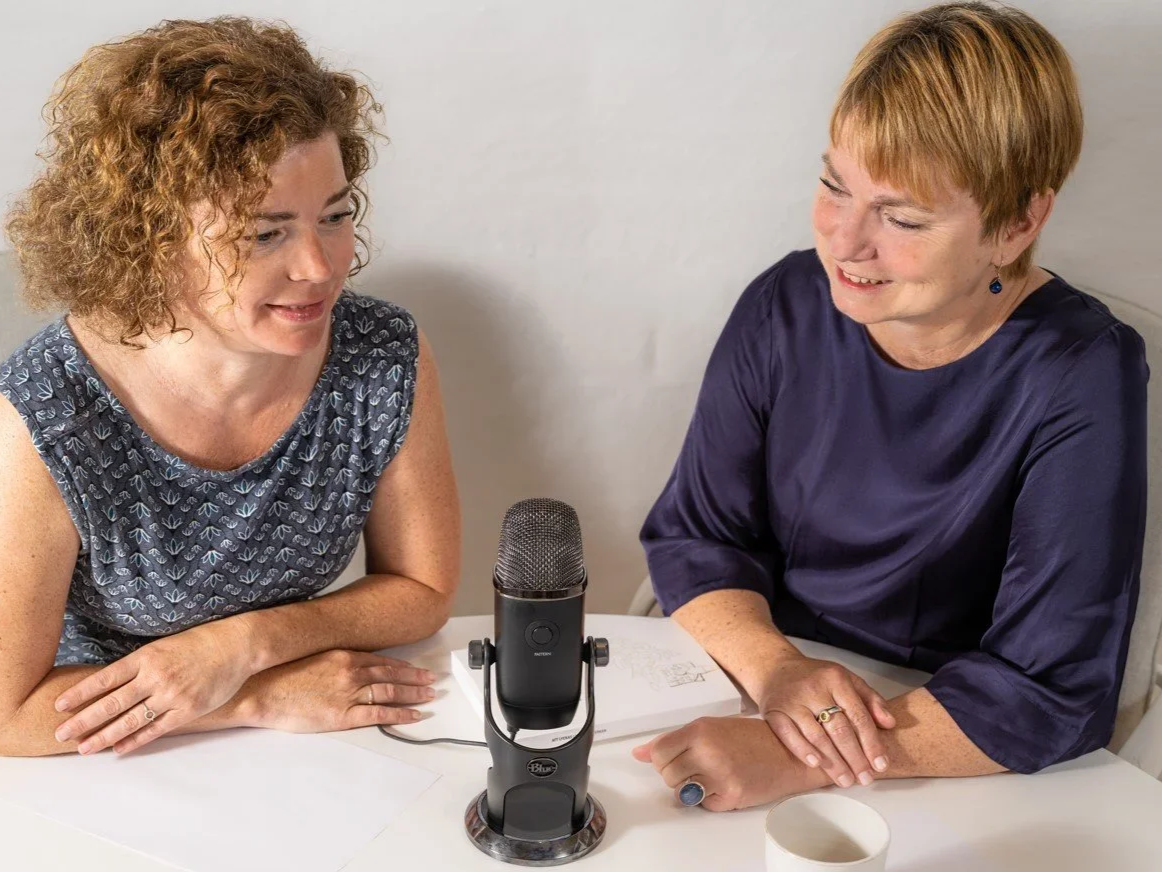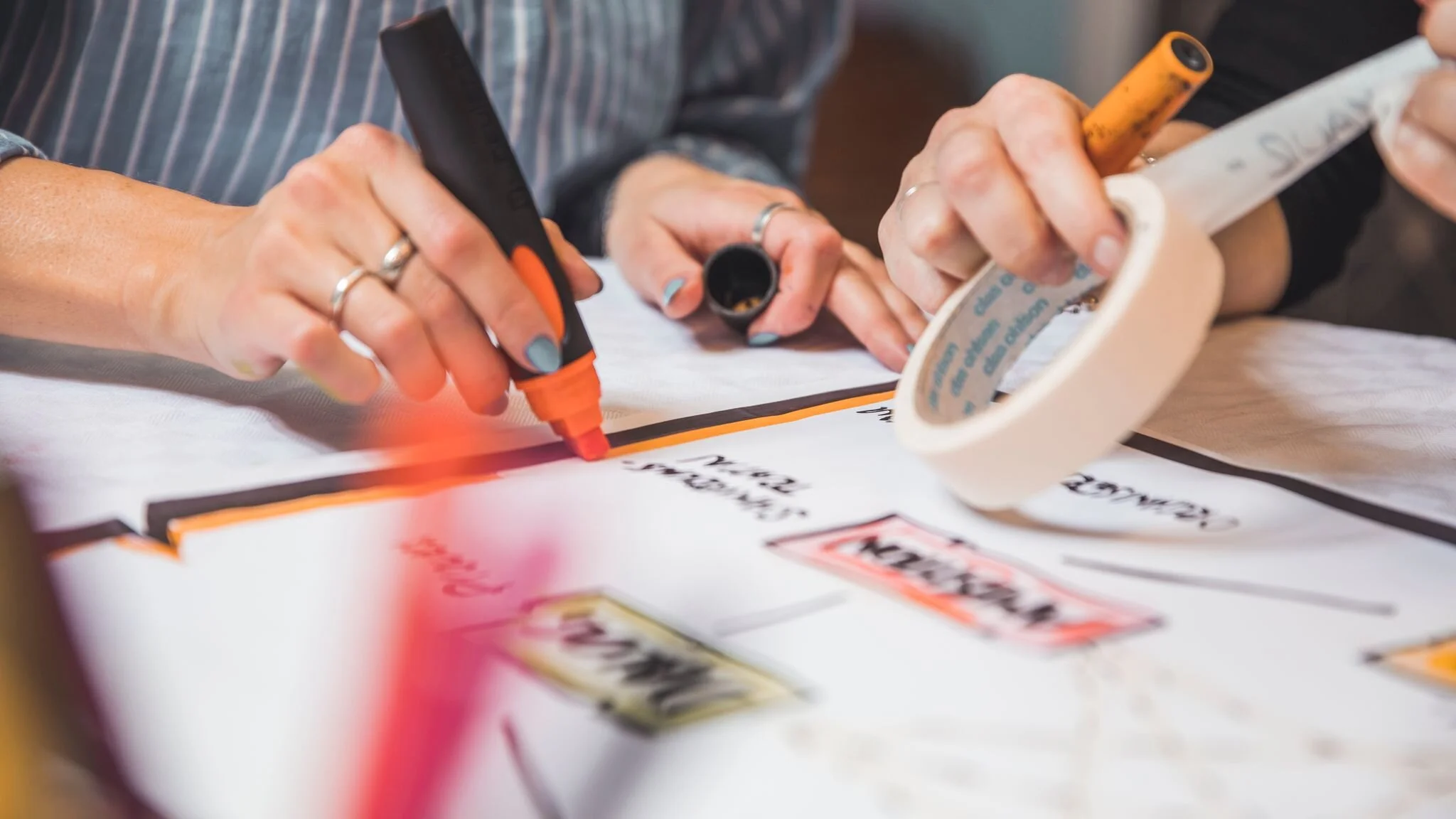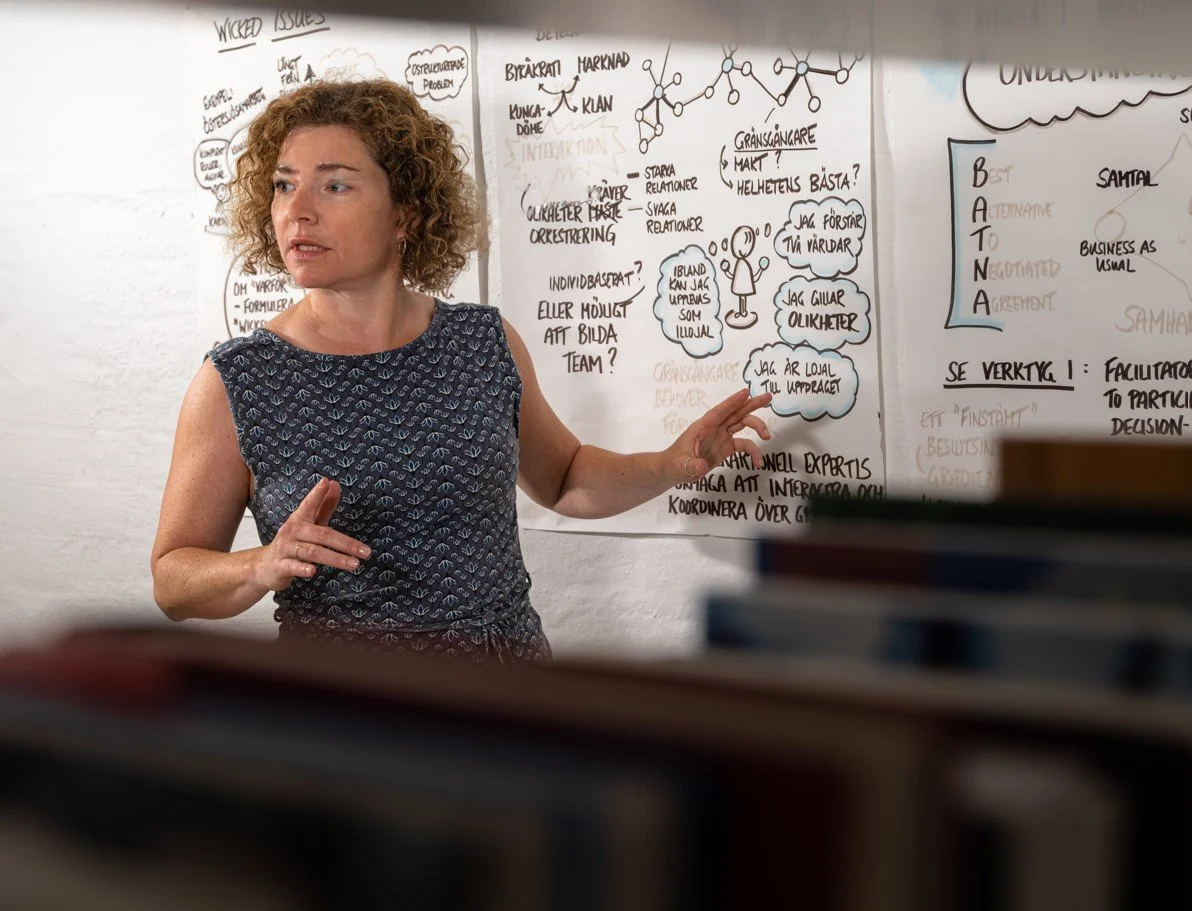Länka Consulting
Our mission is to support and strengthen multi-stakeholder collaboration. To work across boundaries (organizations, sectors, disciplines) will be crucial to find sustainable solutions to the complex and multifaceted issues that society faces today. And this work requires special competences to be successful.
Since 2015, we have been exploring and developing the art of collaborating as a specific way of working and as a special competence. Based on research and long practical experience we provide mindsets, skills and methods that are empower groups to progress when working with complex issues from different perspectives.
Why are collaboration skills so important?
Multi-stakeholder collaboration is needed for addressing today’s complex problems and future opportunities. Many professionals find themselves managing projects and processes where different organizations and knowledge perspectives meet to create new solutions. These projects and processes take place within and between areas such as climate, health, city planning, growth and competitiveness, healthcare, energy, mobility and transport, construction, international collaboration, local and regional development, research and innovation etc.
Collaboration initiatives help us uncover knowledge and insights that are hidden in between our traditional silos. When our diverse views and understandings meet, there is great potential for new ways of thinking and acting. But this can also be the biggest challenge, as we are not used to lead between our silos. So how can successful collaboration initiatives be enabled and managed practically to unleash this great potential? How to integrate the different perspectives, how to create a shared understanding among differing views, how to create strong relationships and build lasting trust, how to create real results, both short-and long term?
Specific skills and methods are needed in multi-stakeholder collaboration that differ from traditional project management tools and leadership models created for leading within organizations. These skills can be trained and applied for immediate and better results and real progress in complex issues.
About Länka Consulting
Länka Consulting was founded in 2015. The company is located in Stockholm, Sweden, and is focused on strengthening multi-stakeholder collaborative capacity. In 2019, Länka published the book “The Art of Collaborating” in Swedish (“Att lyckas leda i samverkan”) that is now being translated into English and probably will be published autumn 2024.
We have trained thousands of professionals that lead multi-stakeholder collaboration during the last 10 years. Our open trainings are inspiring encounters of different sectors and perspectives, offering a comprehensive introduction to collaboration theories, models and tools. Participants from various sectors and both local, regional, national and international contexts meet and develop collaboration management skills.
Listen to our podcast Art of Collaborating!
In our Podcast Art of Collaborating we interview experts and thinkers from the world of collaboration in order to reflect on and share knowledge from this field. The episodes we’ve recorded in English are:
An Interview with Sam Kaner and Nelli Noakes, experts within process management and acknowledged worldwide. We met Sam and Nelli at a conference in San Francisco 2018.
A conversation with Ken and Mary Gergen from a conference on Färöarna. During this talk we get to hear about their thoughts on social constructivism, a theory and approach that inspired us deeply when trying to understand the skills that are needed in collaboration initiatives.
A discussion about the book Social Worlds. A Communication Perspective by Barnett Pearce. This book inspires us to look at our communication patterns from a meta perspective and thereby open up new insights, an opportunity in the global complexity with the different perspectives around the same issue that we live in right now!
A "thinking along episode" with researcher Els de Maeijer from Eindhoven university in the Netherlands. With a starting point in Els' dissertation we discuss the importance of languaging in academia and industry collaborations.
A “wicked conversation” with Dutch researcher Anu Manickam where we explore what wicked issues is all about and how we can think and work differently.
Join our digital training 2025 and develop your collaborative leadership skills:
Collaborative leadership skills for successful multi-stakeholder collaboration
Take this opportunity to improve your practical skills for unleashing the potential in collaboration projects and processes! Are you leading or part of a multi-stakeholder initiative where many different organizations meet around complex issues? Are you facing challenges such as finding common ground and common goals, utilizing the different perspectives and competences, handling conflicts and unforeseen happenings, creating ownership, progression and results?
Join our digital training starting in January 2025. Be part of an interactive training where proven practical mindsets and methods are in focus!
WHy are collaboration skills so important today?
Multi-stakeholder collaboration is crucial for solving today’s complex problems where many different perspectives and organizations are involved. We can see the need for collaboration everywhere: within and between businesses, universities, the public sector, and non-profit organizations; at and between the local, regional, national, and international levels; between different organizations, sectors, fields of expertise, and perspectives.
Many professionals find themselves managing projects and processes where different organizations and knowledge perspectives meet to create new solutions. These projects and processes take place within and between areas such as climate, health, city planning, growth and competitiveness, healthcare, energy, mobility and transport, construction, international collaboration, local and regional development, research and innovation and many more.
Collaboration initiatives help us uncover knowledge and insights that are hidden in between our traditional silos. When our diverse views and understandings meet, there is great potential for new ways of thinking and acting. But this can also be the biggest challenge, as we are not used to lead between our silos. So how can successful collaboration initiatives be enabled and managed practically to unleash this great potential?
Specific skills and methods are needed in multi-stakeholder collaboration. These differ from traditional project management tools and leadership models created for leading within organizations. These skills can be trained and applied for immediate and better results and real progress in complex issues.
What you can expect from this training
A deep understanding of how to practically lead multi-stakeholder collaboration successfully
A toolbox for creating collaborative dialogues, a collaborative culture, co-action and commitment in processes where many stakeholders are involved
Supporting mindsets for dealing with complexity and conflicting interests in a creative way
Practical experience of the effects these mindsets and tools can create in a multi-stakeholder group
Inspiring exchange of knowledge and experience with other collaboration leaders and initiatives
Insights for improvements of your own context
An opportunity to be part of an international network of collaboration initiative leaders
dates and Content
Day 1: Understanding the art of collaborating: The unique characteristics of multi-stakeholder-collaboration; leading in the “transitional space”; helpful perspectives on human interaction and communication. The importance of realizing how we are embedded in different contexts and the need for curiosity.
Day 2: Establishing a collaborative dialogue and culture: Patterns of communication and relationships, methods for using a communication perspective that enhances meaningful meetings where different perspectives are involved. Collaborative inquiry and the art of creating an explorative culture and strong relationships in systems
Day 3: Mobilizing the larger system for a joint direction: Taking a systems perspective for involving the right actors in the right way. Methods for finding the higher purpose and clarifying levels of ambitions; questions as a powerful tool for mobilizing
Day 4: Integrating differences: How to utilize conflicting interests and perspectives for new understanding and innovation. How to prevent and be in conflict in constructive ways. Understanding your role and yourself as collaboration facilitator; in-the-moment facilitation
Day 5: Collaborative ownership and decision-making: The importance of involving key stakeholders within the participating organizations; methods for decision-making in multi-perspective groups. Creating feedback-loops to strengthen collaborative ownership
Day 6: Collaborative design and learning or “being collaborative about collaboration”: Methods for designing long-term multi-stakeholder collaboration processes; how to establish a continuous focus on results and learning.
upcoming trainings
Start spring 2025: 23rd of January 2025, 13th of February 2025, 13th of March 2025, 10th of April 2025, 8th of Mat 2025, 18th of June 2025
Start autumn 2025: 2nd of October 2025, 29th of October 2025, 20th of November 2025, 11th of December 2025, 15th of January 2026, 4th of February 2026
Practical information
Time: 09:00-15:00 CET with one hour break 12:00-13:00
Location: Via Zoom. Zoom links will be provided to participants
Cost: 2450 Euro. Discounts available for nonprofits
Contact: Send an email to info@lankaconsulting.se for more information or registration
The training sessions are interactive and you will have lots of opportunities to connect with other participants. Between training sessions we provide you with extra digital material on our digital learning platform. You will als receive a copy of our book “The Art of Collaborating” (Bottheim, Zingmark 2024).
Training approach
High usability and practical benefits in the participants’ everyday collaboration work characterizes our training approach. We put a lot of effort into integrating the learnings in the participants’ professional contexts. We alternate theory and practice and adapt to different learning styles. We consider it important to create a safe space for both dialogue, exercises and reflection, thereby enabling and creative presence among the participants. High interactivity and focus on typical situations in multi-stakeholder collaborations that are based on the experiences of the participants, ensures that the training becomes relevant for all participants. We always use creative tools for visualisation and documentation during our trainings.
who are you?
You are one of many different participants with very different backgrounds and working contexts:
You are either leading/managing or participating in one or more multi-stakeholder collaboration initiatives involving different organizations and knowledge perspectives. You are interested in how to further strengthen the collaboration initiative and how to move it forward. You want to improve your personal and professional skills in order to contribute even more to the progress of these processes.
You may be working in a private company, or at a university, in a public organisation or a non-profit organisation. You might be working within city development, education, culture, sustainability, construction, healthcare, energy, agriculture, research and innovation, social services, local and regional development etc. You might be leading a larger triple/quadruple-helix network or cluster initiative. Your work can involve different levels (international, EU, national, regional and local) and different geographies. You might be working in a transnational organization or with transnational projects.
about us
Länka consists of Anna Zingmark and Karoline Bottheim and has trained thousands of professionals in collaboration leaderships skills in Scandinavia during the last 10 years. Our open trainings are inspiring encounters of different sectors and perspectives, offering a comprehensive introduction to collaboration theories, models and tools. Participants from various sectors and from local, regional, national and international contexts meet and develop collaboration management skills.
Länkas mission is to spread and strengthen collaborative leadership skills and “the art of collaborating” to as many contexts as possible where this skill is crucial. Being in contact with research and experts on different aspects of collaboration, we see our role in translating knowledge and experience into practical and useful methods. We do this by writing books, running the podcast “Art of Collaborating” and providing trainings and counselling. We are constantly exploring how collaboration can succeed together with a great network of practitioners and experts. Join us if this sounds interesting for you.







